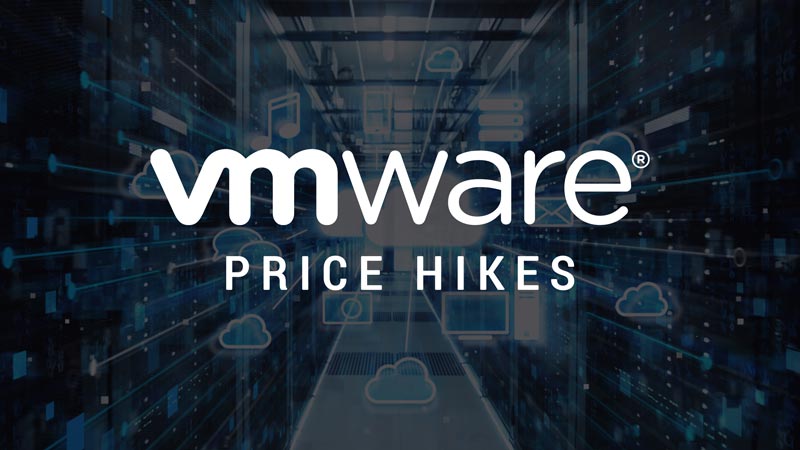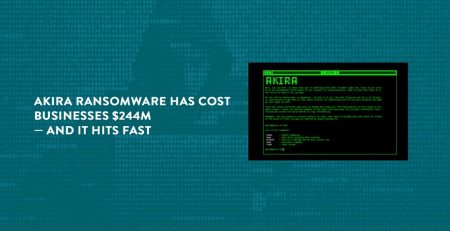VMware Price Hike: What It Means for Your Organization
Migrating business operations to the cloud is growing in popularity, but there still are several organizations that utilize on-premises servers.
Sometimes it’s out of preference, but oftentimes, it’s out of necessity, as they have legacy applications that need to run on a local server.
For those with on-premises servers, VMware, a company that specializes in virtual servers, recently announced price increases that will most likely force some organizations to consider making the jump to the cloud or another virtualization software.
Let’s talk about how much the price increased and what impact that will have on small and medium-sized businesses (SMBs) going forward.
How Much is the Price Increasing?
The actual price increase will depend on how many server cores (the part of the server’s processor that handles data) an organization currently uses. For context, the average Hungerford client could experience a more than 100% increase.
VMware said in its announcement that it will no longer sell perpetual server licenses, moving to a subscription-only licensing model. Previously, customers purchased a license and then paid a subscription fee for support. Now, everything is bundled together.
Before the increase, we had clients who spent $500 for a perpetual server license plus $70/year for support, which is $710 for a three-year license. Now, that same three-year license costs around $11,000.
VMware is forcing its customers to purchase a minimum of 72 cores, up from 16. Of course, a server with more cores is more expensive, so even if an organization only needs 16 cores to operate efficiently, it’ll be required to purchase 72.
Additionally, if customers are late in renewing their licenses by their anniversary date, VMware will charge an extra 20% of the first-year subscription price.
“Moving your organization’s business operations to the cloud might be a more cost-effective option. We’ve helped several clients migrate to the cloud, as it offers a convenient way for employees to access company data remotely on multiple devices without using a VPN.”
How Does This Affect SMBs?
SMBs will be most affected by the increase, as most of them simply don’t need that much computing power for their day-to-day operations and don’t have the extra money lying around. Increasing costs by more than $10,000 over three years is a big deal, especially considering recent implementation of tariffs will drive up costs elsewhere.
A good chunk of our clients still relies on VMware servers, and this news will no doubt push them to consider other possibilities.
It appears that VMware is purposely trying to price out smaller organizations, choosing to focus on larger enterprises and corporations that can stomach the increase.
Although it may even be too much for the biggest of conglomerates, as AT&T claims its costs will increase by 1,050% annually and notified VMware that it intends to look at other options unless another offer is made.
Should You Move to the Cloud?
Moving your organization’s business operations to the cloud might be a more cost-effective option. We’ve helped several clients migrate to the cloud, as it offers a convenient way for employees to access company data remotely on multiple devices without using a VPN.
Unlike servers, which have a lifespan of three to five years and are prone to more failures the older they get, cloud services have no limit to their lifespan. Additionally, the maintenance and upgrades for cloud services aren’t your responsibility, whereas you would handle those costs for your server.
With cloud services, you won’t have as much control as you do with a server, but you’ll get enterprise-grade security from your provider and scaling up or down is much easier.
VMware Servers
If you have questions about the VMware price increase or want to learn more about cloud solutions, please email us at support@hungerford.tech or call us at (616) 949-4020.
Stay updated! Get tips and insights delivered to your inbox weekly by subscribing to our newsletter.











